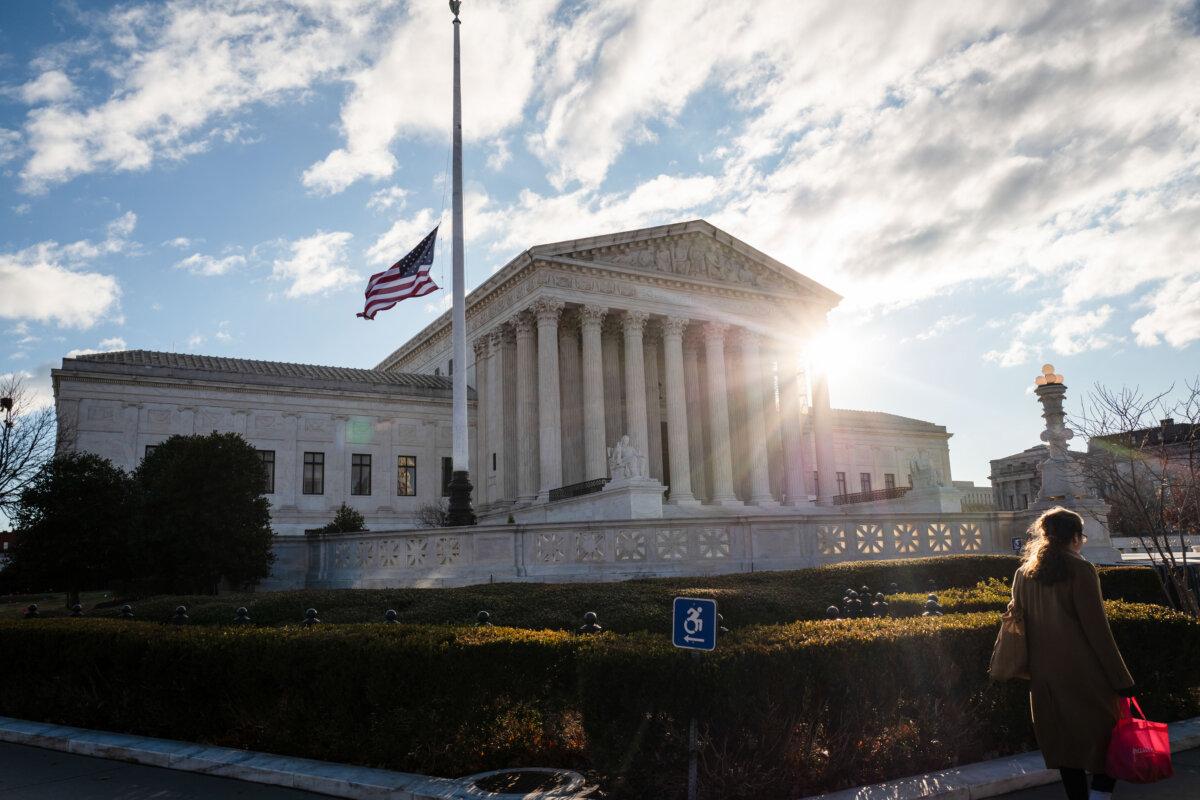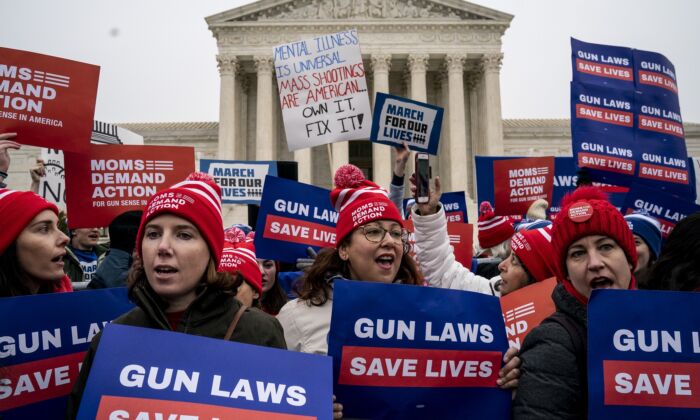The court turned down cases on legal process and licensing but may still consider challenges to weapons and magazine bans in Maryland and Rhode Island.
The U.S. Supreme Court has declined to hear two Second Amendment cases but may still agree to hear two closely watched cases challenging bans on certain types of rifles and ammunition magazines.
The cases of Snope v. Brown, which challenges Maryland’s ban on certain semiautomatic rifles, and Ocean State Tactical v. Rhode Island, which challenges Rhode Island’s ban on ammunition magazines that hold more than 10 rounds, are the most significant cases currently before the high court, some Second Amendment advocates say.
They hope the Supreme Court will reverse those and similar bans, which have also been instituted in several states. A Supreme Court decision could set the precedent to strike down the so-called “assault weapons bans.”
“Snope provides the Supreme Court with an excellent vehicle to correct the widespread misapplication of the Court’s precedent regarding these firearms and the Second Amendment itself,” said Adam Kraut, executive director of the Second Amendment Foundation.
Eleven states—Illinois, California, Connecticut, Washington, New York, Maryland, Colorado, Delaware, Hawaii, Massachusetts, and New Jersey—and the District of Columbia ban semi-automatic rifles they consider “assault weapons.” Most of the bans focus on features that some lawmakers say make the guns “dangerous and unusual.”
These include detachable magazines, flash suppressors, barrel shrouds, and pistol grips.
Mark Smith, a constitutional attorney and social media influencer, said that the court will likely relist the cases to be considered for certiorari. In an email to The Epoch Times, Smith, a Second Amendment advocate, expressed optimism about the possibility of the plaintiffs succeeding.
“Overall, I am pleased that the Supreme Court appears to be relisting both Snope v. Brown and Ocean State Tactical,” Smith said. “Both cases address arms ban laws, and that the cases were relisted and not denied bodes well. We will know more about what the Supreme Court intends to do with these arms ban laws by the end of January.”
Gun control organizations are just as hopeful that the bans will be upheld and that a federal assault weapons ban will be reinstated.
Brady, a gun control and gun safety advocacy group, has been rallying its membership to oppose President-elect Donald Trump’s promised efforts to expand gun rights.
“But we’re going to need to come together stronger than ever to preserve the progress we won under President Biden,” a recent Brady fundraising email states.
The two cases the court turned away were Maryland Shall Issue v. Moore and Gray v. Jennings.
In the Maryland Shall Issue case, Maryland gun rights advocates asked the court to review the August 2024 decision by the Fourth U.S. Circuit Court of Appeals upholding Maryland’s requirement for a handgun qualification license.
In Gray v. Jennings, the plaintiffs asked the high court to overturn a Third U.S. Circuit Court of Appeals decision declining to block Delaware’s assault weapons ban while it was being disputed in court. They claimed that the court applied a standard to Second Amendment cases that was not applied to other cases.

They contended that this made the Second Amendment a “second-class right, subject to an entirely different body of rules than the other Bill of Rights guarantees.”
Smith pointed out that both of the denied cases were more about legal processes than actual Second Amendment issues. He reiterated that, from his perspective, the Snope and Ocean Tactical cases are the most potentially pivotal cases.
“I remain cautiously optimistic that the Supreme Court will grant cert [grant a writ of certiorari] in one of those cases,” Smith wrote.

